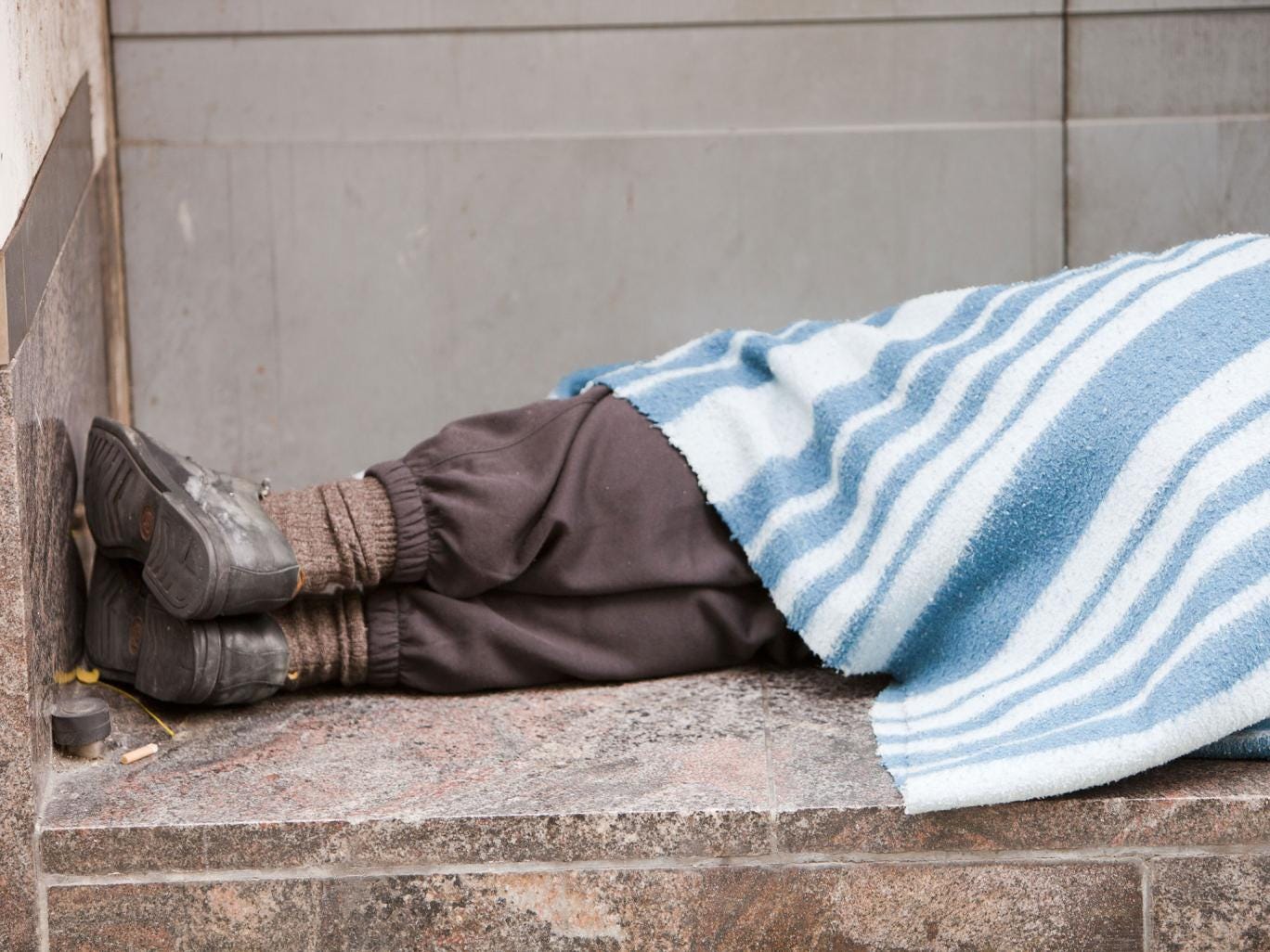
For a Government that has frequently fallen back on Victorian ideas of the deserving and undeserving poor – in 21st-century parlance, the “strivers” and the “shirkers” – the annual Christmas appeals to help the homeless must come as awkward reading. Charity and community action are at the heart of the compassionate vision of Conservatism that David Cameron once championed. A Christmas shelter for the homeless is just the kind of place he had in mind with his long-defunct vision of a Big Society.
But what feelings do such places conjure in him now? Five years into his premiership, the official data has begun to catch up with what people working in frontline public services knew about long ago: that his Government’s policies on housing are driving vulnerable people out of their homes.
The modern reality of homelessness is, of course, more complex than the archetype of the rough sleeper. Although the number of those on the streets has risen steadily in the past five years, last year’s figure of 2,744 is dwarfed by the numbers of homeless living in temporary accommodation – increasingly in the form of B&Bs, a family to a room, sharing toilets and kitchens with dozens of others. The figures are rising more quickly now than at any time since the height of the economic crisis. Councils in England received more applications from desperate people for statutory homeless status – requiring authorities to help them – in July to September this year than in any similar period since 2008. Official figures show 68,560 families in temporary accommodation in that period – also the highest it has been since 2008.
A new homelessness crisis is on the horizon and it is of the Government’s own making. Since 2013, housing benefit increases were fixed at 1 per cent, well below inflation, and with private rental costs soaring. This year we were told that the benefit rate would be frozen for four years. Combine this with the impact of other welfare cuts, and it is no surprise that more and more landlords – many of them beneficiaries of a boom in buy-to-let – now look on benefit claimants as unreliable tenants.
This is not to excuse what they do; they share in the blame for the current surge in homelessness. But the consequence of slashing benefits while the rental sector ran rampant must have been evident to the Government, and yet it stayed the course. The ending of a short-term rental contract now accounts for nearly one in three new cases of homelessness – the highest since records began nearly 20 years ago.
It does not help that tenancy law is stacked in the favour of landlords. Families and young people who cannot dream of a mortgage are at the mercy of landlords who are at more liberty to evict than before the Conservatives loosened the rules governing tenancies.
And the sense of crisis is further compounded by the fact local authorities are entering their sixth year of funding cuts, and are less and less able to help. Often they ask families, whose tenancies are coming to an end and who cannot find an affordable alternative, to stay where they are until they are literally turned out on the street – thus qualifying them for the limited supply of emergency accommodation. That is neither practical nor moral. No doubt the Prime Minister will want to trumpet the compassion of the homeless charities and their volunteers helping the needy this Christmas. He might do better to examine his own conscience.

No comments:
Post a Comment